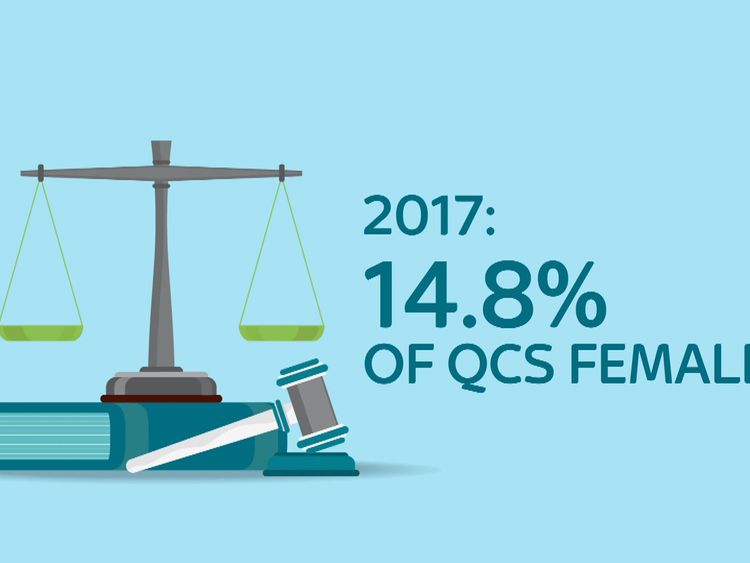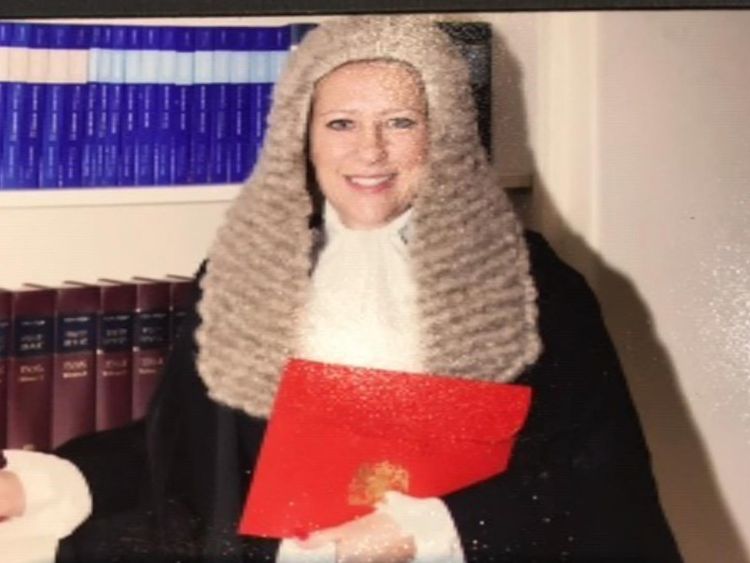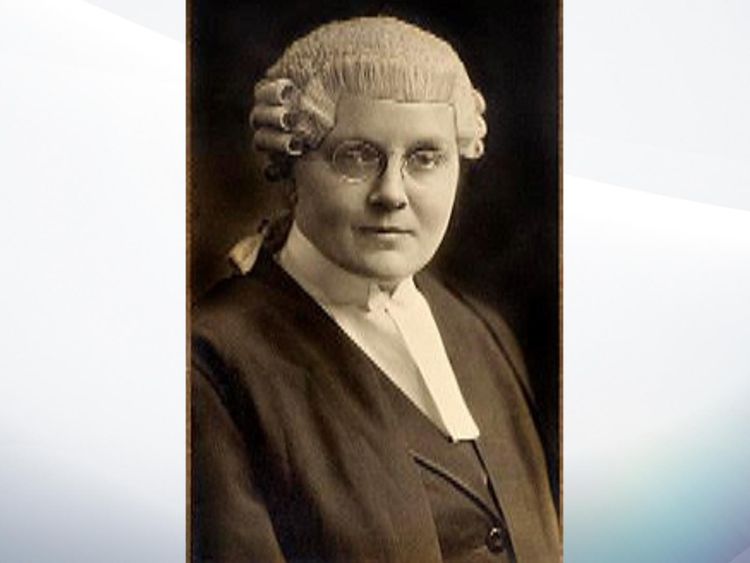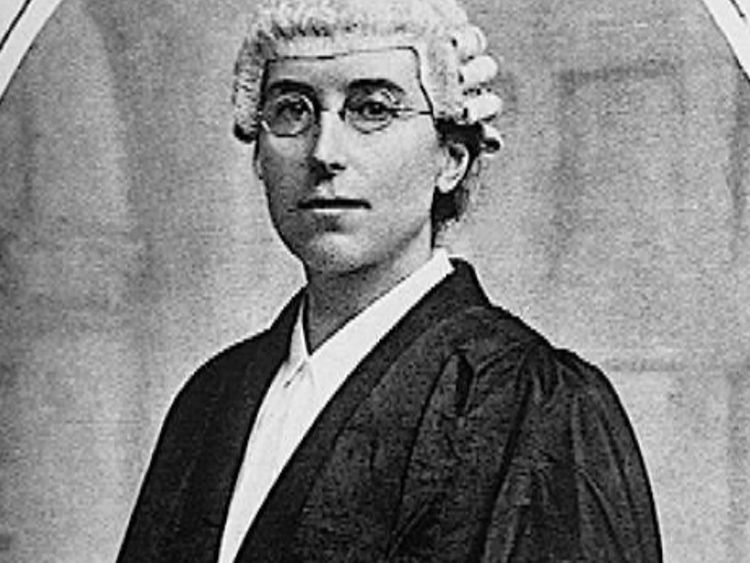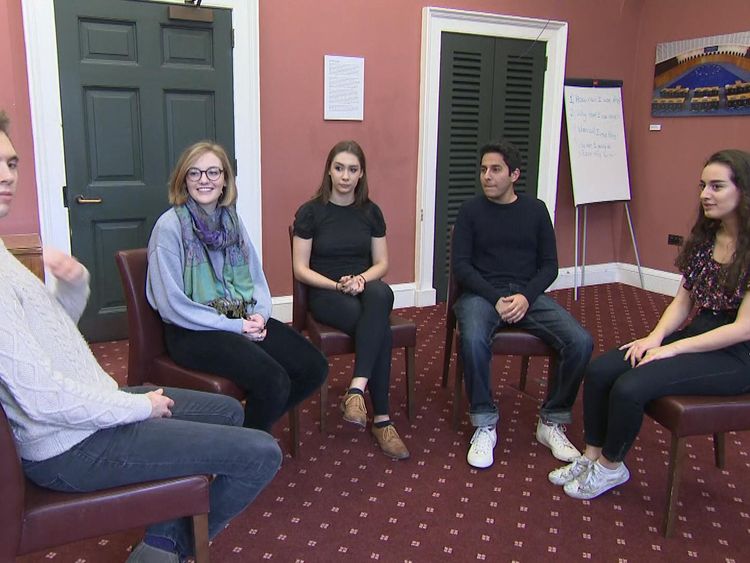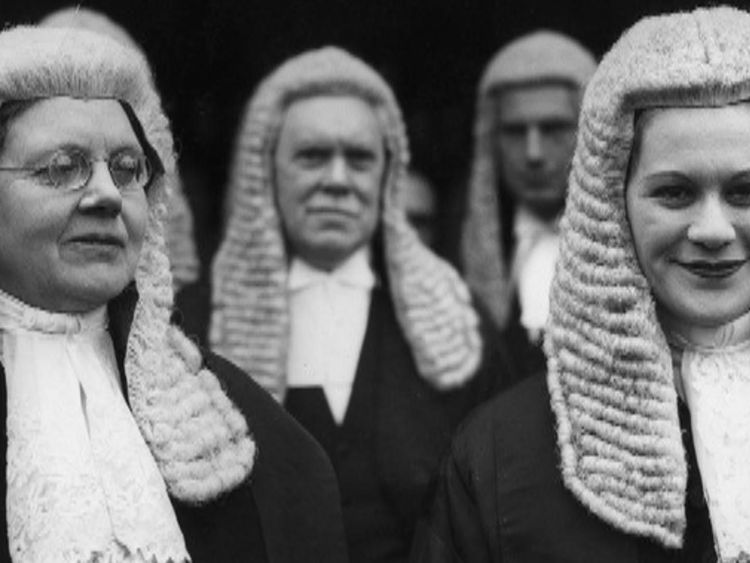Female lawyers still facing 'frustrating' inequality
The organisation wants to promote “meaningful discussion” around the future of women within the profession.
Latest statistics show that while there is an almost equal split of male and female pupils studying to be barristers, just 14.8% of QCs were female as of December 2017.
That figure shows a rise of just over 1% compared to the previous year.
As women ascend through the profession, there appears to be a “drop-off” because of issues around retaining staff in higher positions when they decide to have children.
Amanda Pinto QC, vice-chair of the Bar Council, climbed the ladder and had a family at the same time.
She says more and more women are joining the profession, while admitting that equality has not been reached yet.
“One of the main things is that people get to a particular point in their career and they think it’s too difficult or it’s not working out well,” she said.
“For women in particular, we have discovered that the problem really is with retention at about the time that women have children. The Bar is a difficult profession because you don’t necessarily know if you’re going to be working a very long day or get home to pick up your children.
“It’s that uncertainty that makes it hard. We at the Bar Council are trying to put things in place to make it more simple.”
The Bar Council have introduced mentoring programmes and a confidential helpline alongside other schemes designed to help retain female staff and encourage progression.
Part of their campaign is to highlight the success stories of other women rising through the ranks to become QCs.
Students at King’s College Law Society, however, believe there is a long way to go before true equality is reached.
Ahmed, a second year law student, said: “The lad culture that you get from public school goes to the Bar as well.
“There’s a certain chumminess that you feel at certain events that I think works against women.”
Gordana, in her third year, admits the equality issue is frustrating.
“I’m not somebody who would see the equality statistic and be put off by that,” she said.
“But I think it’s frustrating if I go for a pupillage and I go to speak to a female practising at the Bar – I think it’s stupid at the age of 20 that I have to ask: ‘How do you manage working and having children?’.
“It shouldn’t have to be even considered.”
Sabah, a first year student, said she would not want to feel like she was being given opportunities just because she is female, adding: “I wouldn’t be comfortable just being a statistic in a quota.
“I think personally what I would find more helpful would be scholarships or schemes that would encourage women to then strive for these positions, rather than having a set quote and you feel like you’re just being picked for being a woman and not as a person.”
On International Women’s Day on 8 March, a social media campaign by the Bar Council will be launched to promote equal representation of women at the Bar.
The first woman to practise as a barrister was Helena Normanton in 1919 and in 1922 Ivy Williams was the first to be called to the Bar, but it was not until 1949 that the first two women King’s Counsel were appointed.
Anna Worrall, a retired QC who practised for 53 years, says she has seen huge progress in her time but admits there are probably still pockets of the “boys club” that used to exist.
“I don’t think I realised how difficult it was,” she said.
“You need a lot of resilience, but I think that women do now and they can be assessed as to their suitability because you do have to be tough and you do have to be, as you do in any profession, able to take it.”
The Bar Council’s campaign will also focus on the “next 100 years” for women at the Bar.
Source: Read Full Article
